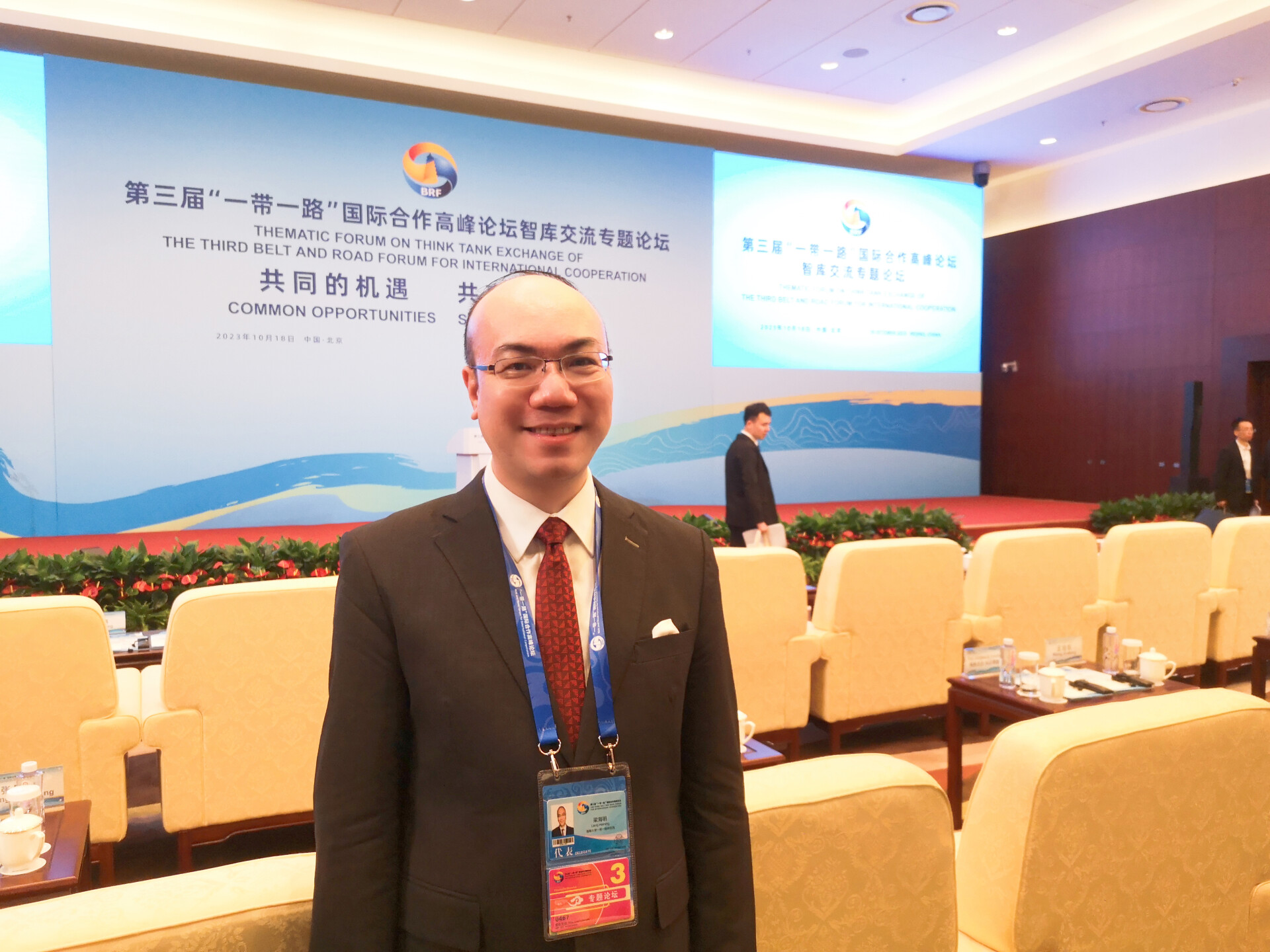Chinese President Xi Jinping on Wednesday announced eight major steps that China will take to support high-quality Belt and Road cooperation at the 3rd Belt and Road Forum for International Cooperation (BRF).
The eight steps cover a multidimensional Belt and Road connectivity network, an open world economy, green development, scientific and technological innovation, people-to-people exchanges, and more.
What role can the GBA Play in the development of BRI in the future? Leung Hoi Ming, Dean of the Belt and Road Research Institute of Hainan University, shared his insights with GDToday.

Leung Hoi Ming, Dean of the Belt and Road Research Institute of Hainan University, attended the themed forum on think tank exchanges of the third BRF. (Photo provided to GDToday)
GBA can provide valuable reference for the BRI (Belt and Road Initiative) partner countries
According to Leung, the development experience of cities within the Guangdong-Hong Kong-Macao Greater Bay Area (GBA) can provide valuable reference for BRI partner countries. Setting aside the development experience of Hong Kong and Macao, other cities in Guangdong Province, such as Shenzhen which has developed from a small fishing village into an international metropolis and a global innovation hub within just three to four decades, offer inspiration for cities along the BRI routes in their endeavors toward innovation.
"Apart from the Shenzhen model, cities of the BRI partner countries can draw on various successful models for the attraction of foreign investment. They can learn from the Nansha model (private capital), the Dongguan model (processing trade), and the Foshan model (renowned manufacturing city)," he added.
At the forefront of China's opening-up, cities within the GBA have maintained close ties with the BRI partner countries, and beyond, over the past few decades.
Statistics from the Foreign Affairs Office of the People's Government of Guangdong Province show that as of April 2023, Guangdong has a total of 204 pairs of official sister provinces, with 65 countries around the world. "It has laid a solid foundation for the promotion of policy and people-to-people connectivity," said Leung.
He comments, "The GBA can serve as a microcosm for study of the BRI. The research on how to promote connectivity in terms of policy, facility, trade, finance, and people-to-people exchanges in the GBA can provide significant insights into how to advance the connectivity between China and the BRI partner countries.
GBA can provide financing opportunities for enterprises from the BRI partner countries
In addition to the Stock Exchange of Hong Kong and the Shenzhen Stock Exchange, Leung suggests that the GBA should consider the establishment of a trade platform which innovates in such aspects as regulations, systems, and technologies.
"This platform would incorporate the existing standards of the Chinese mainland and Hong Kong stock markets and integrate the rules of major American or European exchanges," he said, adding "By combining Eastern and Western approaches, the new exchange could not only attract enterprises from the BRI partner countries for listing and financing, but simultaneously enable them to be listed on exchanges in the BRI partner countries."
GBA should establish a port alliance for the 21st Century Maritime Silk Road
GBA is home to numerous ports in its 11 cities, and Guangzhou was the starting point of the Maritime Silk Road more than 1,000 years ago.
Leung believes that under the context of the BRI, the ports in the GBA should continue to seek alliance-oriented, technology-driven, diversified, and distinctive development. It should aim to become a transportation hub for sea, land, air, and rail, to facilitate access with countries that participate in the BRI.
"Once the port alliance for the 21st Century Maritime Silk Road is established, it will not only achieve complementary advantages but also likely develop into a new international shipping alliance that integrates storage, packaging, handling, circulation, processing, and distribution," he stressed.
Hannah, Qin Shaolong reported from Beijing.
Editor: Wing, Steven, Jerry







